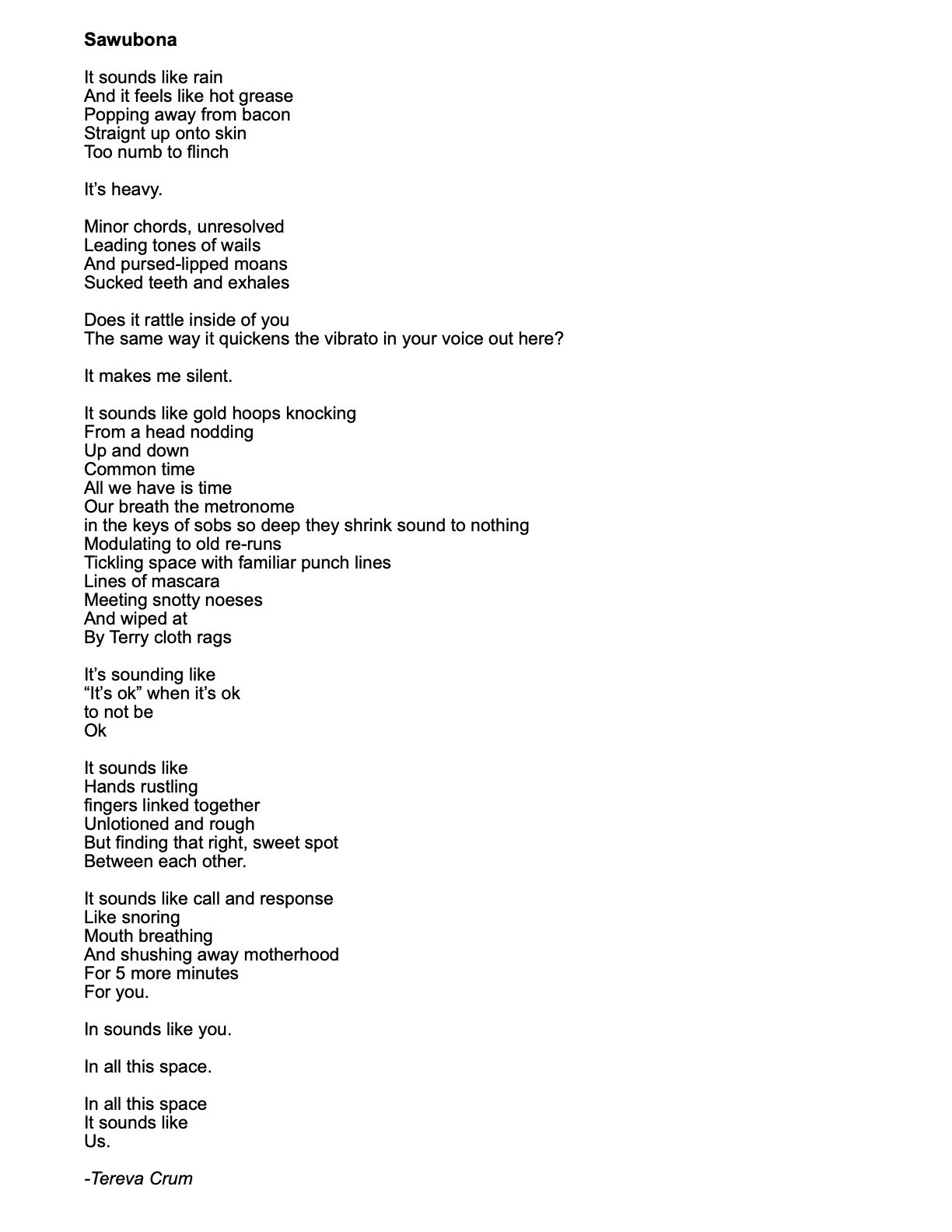Sawubona (Reflections on Listening and the Act of Compassion)
Sawubona. I learned this greeting during a summer in Brooklyn while being taught by the great poet, Sonia Sanchez. "We see you", is it's meaning. It carries with it not only the sacred acknowledgement of other, but the understanding that the "I" is never singular. Sawubona marks the ancestral and communal ties that we have to those unseen and to those who stand before us. We all see you, the whole of you. We acknowledge who you and all of you are.
When I considered the role of listening in the act of compassion, I was led by the depth of Sawubona. I can not hear you if I do not see you; your lineage both physical and emotional. I can not move for you if I do not sit with you. I spent time in silence, not sure how to best share the conclusions that felt so visceral in my body. In that silence, I remembered...
This is the last picture that I have of my grandmother. In her last days, I held her hands, which were always so beautiful to me. I would watch her hands work at her piano for hours as she practiced for gigs or worked out grief, or played hymns to ease peace into our home. When I came face to face with death, with losing the most influential force in my life, it didn't sound the way I imagined. I wasn't overcome by grief. Instead, I sat with my grandmother in silence. I rubbed her feet. I played the music that made her smile. I sat with her and listened to her breath. I looked into her eyes when they opened, and took her hands to my face, like she did so often when she could. And I held her beautiful hands for as long as I could.
Compassion sounds like Grandma’s favorite song…
My mind moves in poetry. Sometimes the words are just words; but when I sit, they sometimes come together to join voices and thoughts to sew together a part of myself that I didn't yet see. In this poem, I wanted to focus on the mundane sounds of compassion. The sitting with. The silence. The inhales after whispered tears. The sleeping and making space for rest, and grief. The sound of hopeful distractions. I have felt some of the most profound compassion by the simple presence of others in the space of my grief, and I felt this an appropriate way to highlight that sacred act.
Poetry can be a useful tool to practice self compassion, but poetry can also be co-authored during difficult times together. Prompted poetry, or lightly scripted poetry, completing phrases such as " I feel, I need, I want..." can also be an empowering activity to prompt self awareness and advocacy to share needs with loved ones and caregivers, thus encouraging appropriate acts of compassion.

